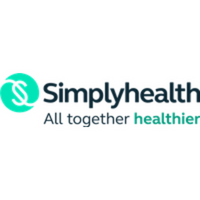How to use health benefits to motivate high earners

This is where the benefits package can make a strong impact on employees who already earn a very competitive salary. Health benefits, in particular, can be useful tools. Through helping high earners take care of their health, employers can encourage and enable great performance.
Why provide health benefits for high earners?
Simply because we all have health and we all need to look after it; regardless of how much money we earn. While affordability of health treatments might not be such a concern for higher earners, this tends to be where health benefits have the greatest impact. For employees at the top of the pay scale though, the provision of health benefits can have a host of other positive effects.
Fundamentally, health benefits show that an employer truly cares. This demonstration of investment in something as personal as health, can create a level of intrinsic motivation that can’t easily be matched by other employee benefits.
This means employees feel valued and with boosted levels of motivation, are inspired and empowered to perform at their best. This effect is especially significant among high earners such as business leaders who have direct responsibility for business performance, and an important example to set for the rest of the workforce.
Great expectations
In higher-paid and more senior roles, there’s often an expectation that a reward package will include some kind of health benefit. Indeed, a lack of health benefits might be seen as a disincentive, and could be an influential deciding factor for a professional at this level choosing their next venture.
Our Health and Well-being at Work report (2019) with the CIPD found that private medical insurance (PMI) is one of the most commonly offered employee wellbeing benefits, available in 57% of organisations. This is also the one health benefit where there is greatest difference in who it’s offered to within the organisation; around one quarter provide PMI to all employees, yet one third only offer it dependent on grade or seniority.
Protection vs. prevention
This shows an interesting approach to rewarding or incentivising higher earners through wellbeing. As one of the more expensive health benefits to provide, it’s understandable that many employers would only fund this for the typically smaller pool of employees in the top salary bracket, rather than the entire workforce. The question is, does this approach target the right segment of employees who might be able to afford this type of private healthcare in other ways?
Aside from the expectation of it being there, protection initiatives like PMI actually have substantial value for businesses and employees alike. For example, insights from our Health and Wellbeing Benefits Guide (2017) show PMI has a total perceived value of 79% when evaluating its impact across managing sickness absence, enhancing employee engagement, and recruiting and retaining talent. For the individual, it can offer great peace of mind that they can get help if an accident or more serious illness occurs.
However, the value of solutions that focus on preventative health, shouldn’t be underestimated. Over half of employees who are offered a prevention-focused benefit, like a health cash plan, take them up, according to our research.
Health cash plans are tools that can be used at any time, not just when something goes wrong, encouraging ongoing body and mind maintenance. For high earners, who might be working in more high pressured roles, preventative solutions mean they can proactively look after their wellbeing, helping them stay healthy.
Financial wellbeing for high earners
It’s easy to think that high earners don’t face the same financial worries as everyone else, but stress over finances can affect anyone. Employers shouldn’t assume that a high salary automatically equals better financial wellbeing. Supporting high earners in this area is still just as important, whether concerns are caused by debt or the complex world of tax.
Financial education and advice are great ways to help employees improve their awareness of their finances, but also to prepare them to deal with financial challenges. Alongside this, access to health benefits like a counselling service or an employee assistance programme, could be a valuable source of support for high earners whose financial worries are causing more serious mental health concerns.
For more on the value of health benefits, take a look at our insight report into linking good health and good business.
This article is provided by Simplyhealth.
Supplied by REBA Associate Member, Simplyhealth
Simplyhealth is a leading healthcare company, committed to simplifying access to affordable healthcare. Working with thousands of businesses and partners, they connect over 2 million people to best-in-class healthcare providers.







